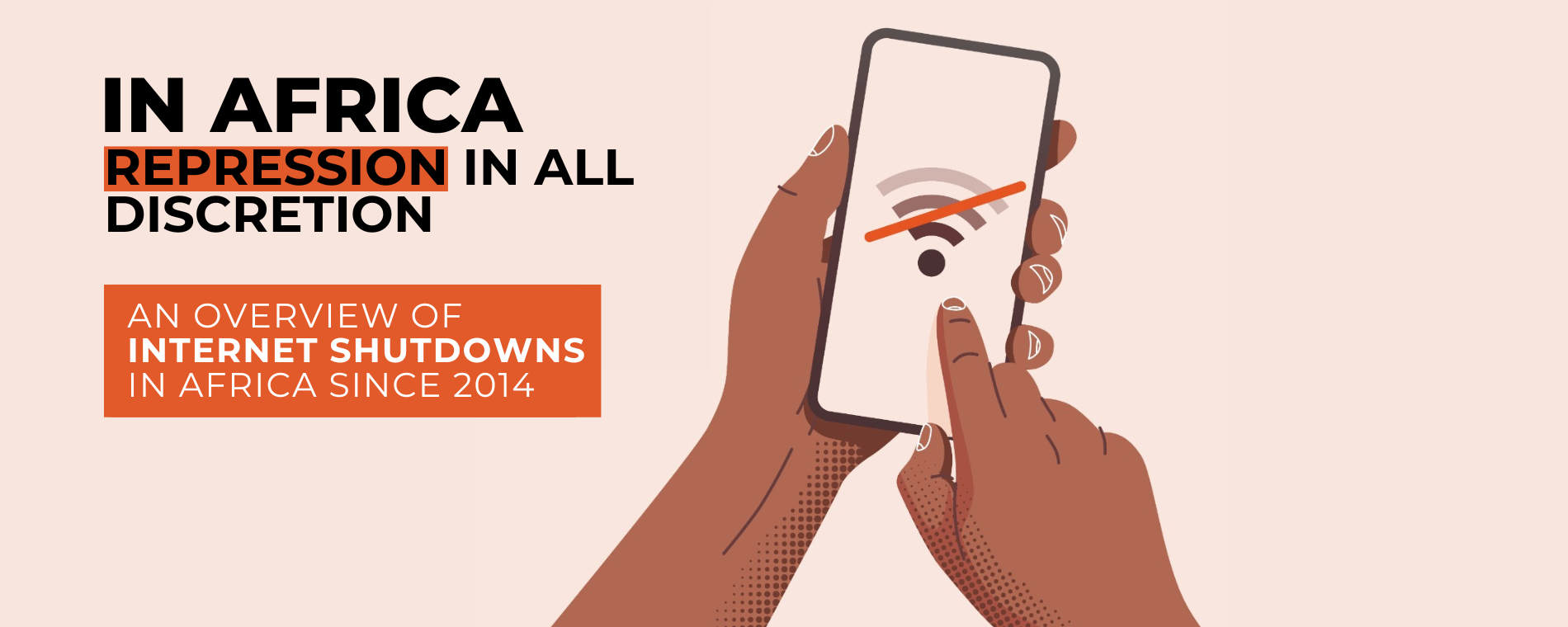25/05/2023 - This Thursday, May 25, 2023, on the occasion of Africa Day, Tournons La Page (TLP) is releasing a report entitled "In Africa, Repression in All Discretion: An Overview of Internet Shutdowns in Africa since 2014". Since its founding in 2014, TLP has found that the work of its pro-democracy activists is undermined by recurring internet blackouts. Of the 14 African countries where Tournons La Page operates, 13 have resorted to partial or total internet outages. This report provides an overview of the internet outages our members have faced and their impact on civic space.
In an ultra-connected world, the Internet has become a central tool for millions of people, whether it be for work, to connect with loved ones or to organize collectively, especially during demonstrations or elections. Having understood this, repressive regimes do not hesitate to partially or totally cut off the Internet in times of possible crisis, thus violating international law and jeopardizing their economy.
For example, since the launch of Tournons La Page in 2014, the African continent has experienced at least 142 Internet outages in 35 countries. This generalization is all the more disturbing because very often, major repressions are organized during the outages, hidden from the eyes of the international community. This report shows a relevant geographical focus: according to the newspaper Le Monde, the African continent is affected by one out of six Internet outages, and it is also the continent where politics is the subject that most concerns Internet users. Therefore, knowing that Africa is also hit by a global trend of democratic decline, it seems crucial to take into account these new forms of repression.
The numerous testimonies gathered in this report highlight the difficulty for our members to document violations of fundamental rights, to coordinate collective activities and to monitor elections due to internet blackouts.
Tournons La Page recommends :
To the states:
- To be transparent about the government's digital actions in order to rebuild trust with the public;
- Create resilient infrastructures with multiple interconnection points spread across the country to make it more complex for a government to shut down the entire network;
- Identify best practices for solving problems without resorting to shutting down the Internet (cooperation between service providers and authorities to counter illegal content, raising citizens' awareness of what is legal and what is not...);
- Involve civil society in the drafting of digital laws for the protection of citizens;
- To measure the cost of a cut-off and its impact on the population and the country's infrastructure.
To telecommunication companies:
- To use all legal means at their disposal to prevent the implementation of a cut-off that has been requested of them and, if such a cut-off must nevertheless take place, to prevent or mitigate as far as possible the negative effects that this measure would have on human rights;
- To take all lawful measures to permit full disclosure of information about the interference.
To civil society:
- Monitor the impact of Internet blackouts and demand transparency and accountability from governments regarding Internet blackouts;
- Knowing national digital laws to continue to take legal action;
- Educate its members on digital security to help protect them.
May 25, 2023
Tournons La Page
Press contact :
Moyra OBLITAS
Communications Officer at Tournons La Page
(+33) 07 56 27 77 69
moyra.oblitas@tournonslapage.org













